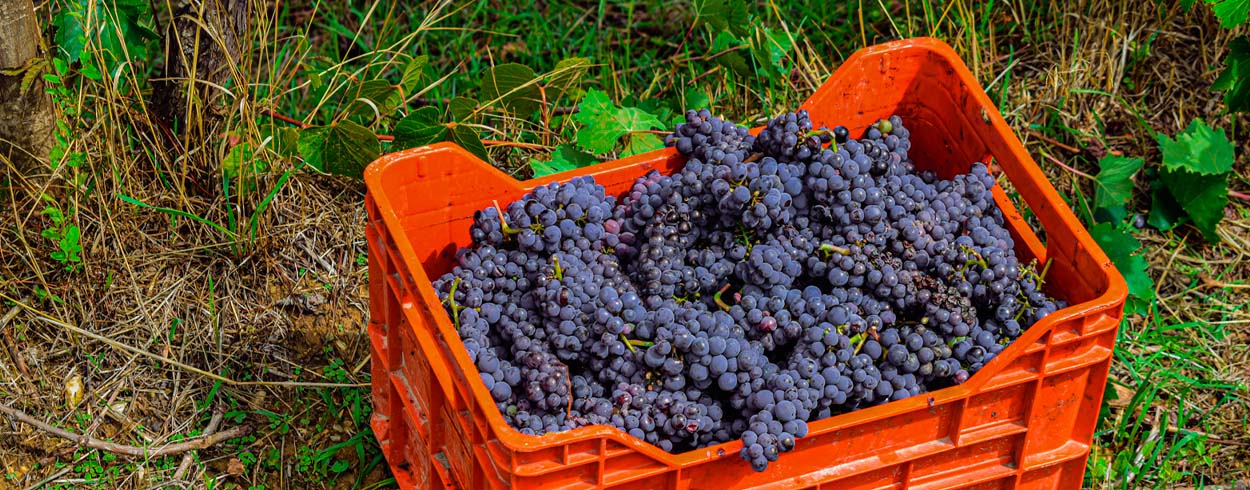
#nofilter: Natural wine - a wack in the eco flock
Modern winemaking with its technologies and various additives and substances has reached, during years of progress, a point where the industry giants can produce year in, year out, regardless of batch, nearly identical homogenous wine. Differences between vintages in these products have diminished until they are practically nonexistent. From customer perspective these products are not only affordable but also, due to their homogeneity, very trusted and easy to buy. And unlike in foodstuffs different wine additives haven’t up till now appeared in discussion as they remain invisible to the customer: there is no legislation that would decree the ingredients, additives and substances of alcohol drinks to be marked on the product packaging.
The vicinity of wine production where the use of substances is most voluminous is such where one single tank in a production facility can hold a hundred thousand litres of wine, and there can be dozens of these tanks at the facility. Sometimes a batch like this may be for some reason or other in danger of failing. In that situation, from a risk management viewpoint it is completely reasonable to use additives or substances which can still make the product more easily sellable; or a big batch that was going to be ruined completely can still be saved. There are also additives widely used in the industry that can be used to make, to quote our Product Communications Manager, Master of Wine Taina Vilkuna, “a quite ok wine from lower-quality grapes”. Additives can fix nearly any quality of the wine starting from colour ending in mouthfeel, and the end result most likely is a satisfied customer. On the other hand, using even lower-quality grapes in a product is better than their ending up as waste, when all resource inputs used in production – energy, water, human labour and so forth – will to go waste as well.
Use of substances and additives is common in smaller-volume production too, mostly when there is a need to adjust the sweetness, alcohol content, acidity or length of shelf-life. There is nothing reprehensible about it. Most of the middle sized producers are in this respect quite average: they only use those substances and in such quantities that are unavoidable.
Despite all the technology, in the minds of many consumers all wine is still “natural”. It is after all produced from fresh plant-based raw material, and the production process i.e. fermentation is a phenomena found in nature. However, perhaps as a counter-movement to the above-mentioned mega volume, extremely fine-tuned production, some smaller producers have started to produce wine like it was made hundreds, even thousands of years ago. These ‘natural wines’ are made using natural methods without added chemicals. Vines are cultivated without synthetic pesticides. No additives are used in the production process. The goal of natural wine producers is to create wine that is as natural as possible, that reminds of the origin of the grape and its natural taste and indeed lacks all modern vinification methods with which to influence the end result.
Even if there is no international agreed standard for natural wines, what they all share is that the grapes are grown organically or biodynamically – it actually is at the very core of the philosophy. The producers however do not have to certify as e.g. organic to be able to categorize their product as natural wine.
Alko categorizes products as natural wines purely based on declarations from producers. As said, there is no legislation or international standard for natural wine. Nevertheless, we decided to show the natural wine attribute as one part of products’ environmental information. This actually is a big fundamental change. Otherwise Alko has always only shown product information that we possess third-party documentation about, e.g. organic certifications. In the beginning of our Eko project we spent a lot of time discussing this policy. Finally we concluded that for us it is important to respond to our customers’ growing desire to know, and therefore acknowledge a wider range of product information from the producers themselves. As a result of the Eko project we apply this same principle with the vegan products in our assortment.
Do you find natural wines an interesting product group? You are welcome to join the conversation in Alko's Twitter @Alko_Sustain.
 Chat
Chat